Projects
The Ecological Intelligence Agency
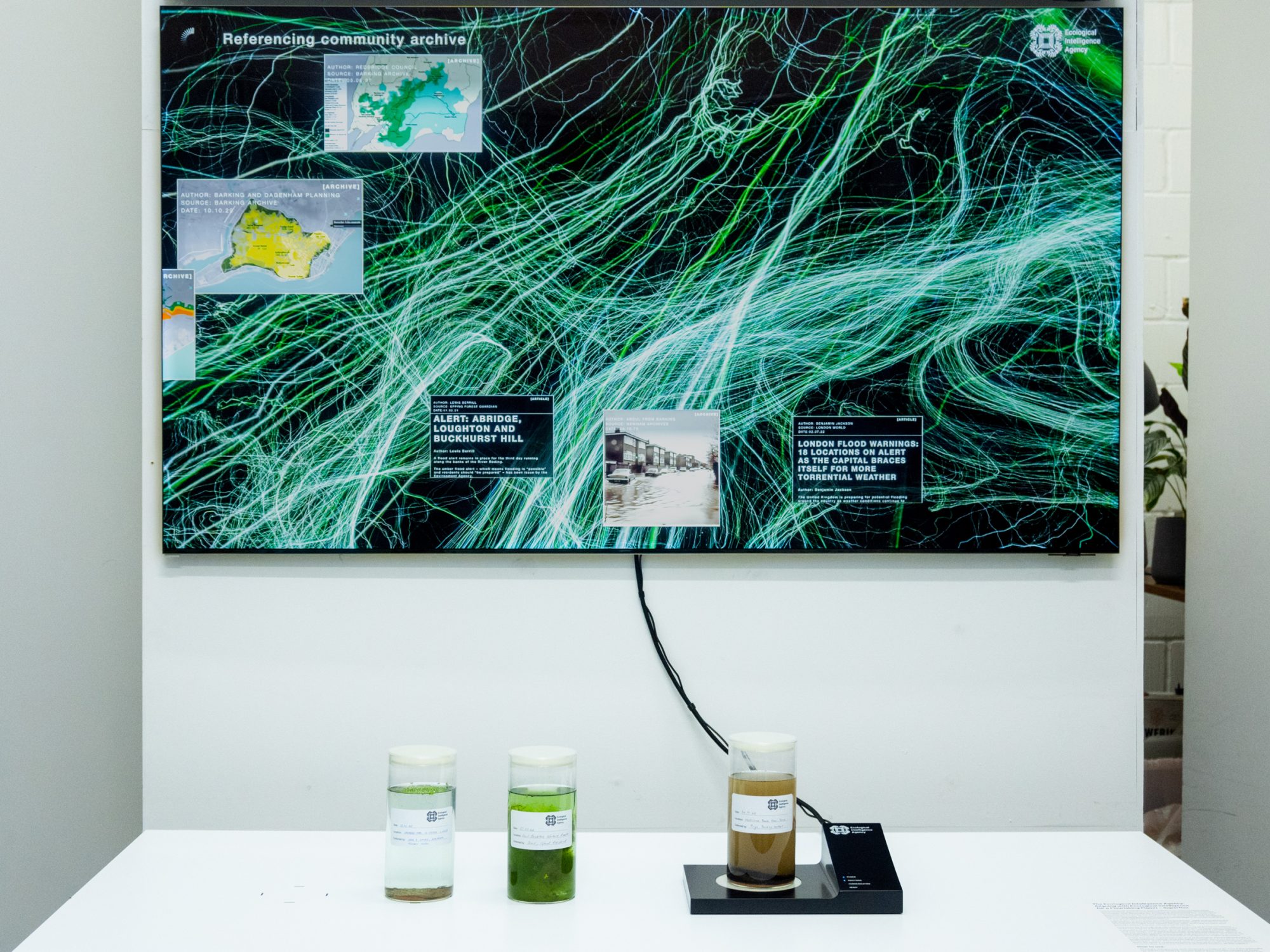
Project Context
In June, ‘Changing Course’ – a forum and exhibition hosted by CaBA (Catchment Based Approach) and led by Policy Lab and Defra Futures – asked “How can we transform what the freshwater system looks like, 20 years from now and beyond?”
Superflux were invited by Neha Sharma (of Policy Lab) and Phil Tovey (of Defra Futures) to explore this question.

Over the last few years the studio’s more-than-human futures work had begun exploring entanglements between ecology and technology to develop the idea of Ecological AI. For this commission exploring water futures and river health, we decided to develop an iteration of Ecological AI, imagining the role AI might have in future policy making.
Our speculative proposal – The Ecological Intelligence Agency – considered how labour, climate and data justice might unite to advocate for ecological health.
Vision & Concept
AI Foundational Models have considerable potential: the potential for radical positive change as well as the threat of existential risk comparable to nuclear war and pandemics (many silicon valley engineers have calculated a P(doom) of 10%).[1]
AI continues to make today’s headlines but it’s been with us for a long long time; policing, recruiting, suggesting. Whilst we can speculate about where foundational models might go, we know of the extractive and exploitative operational practices that go into them, and the few who currently yield the power. Before we think about what AI can do, we need to rethink how we do AI.
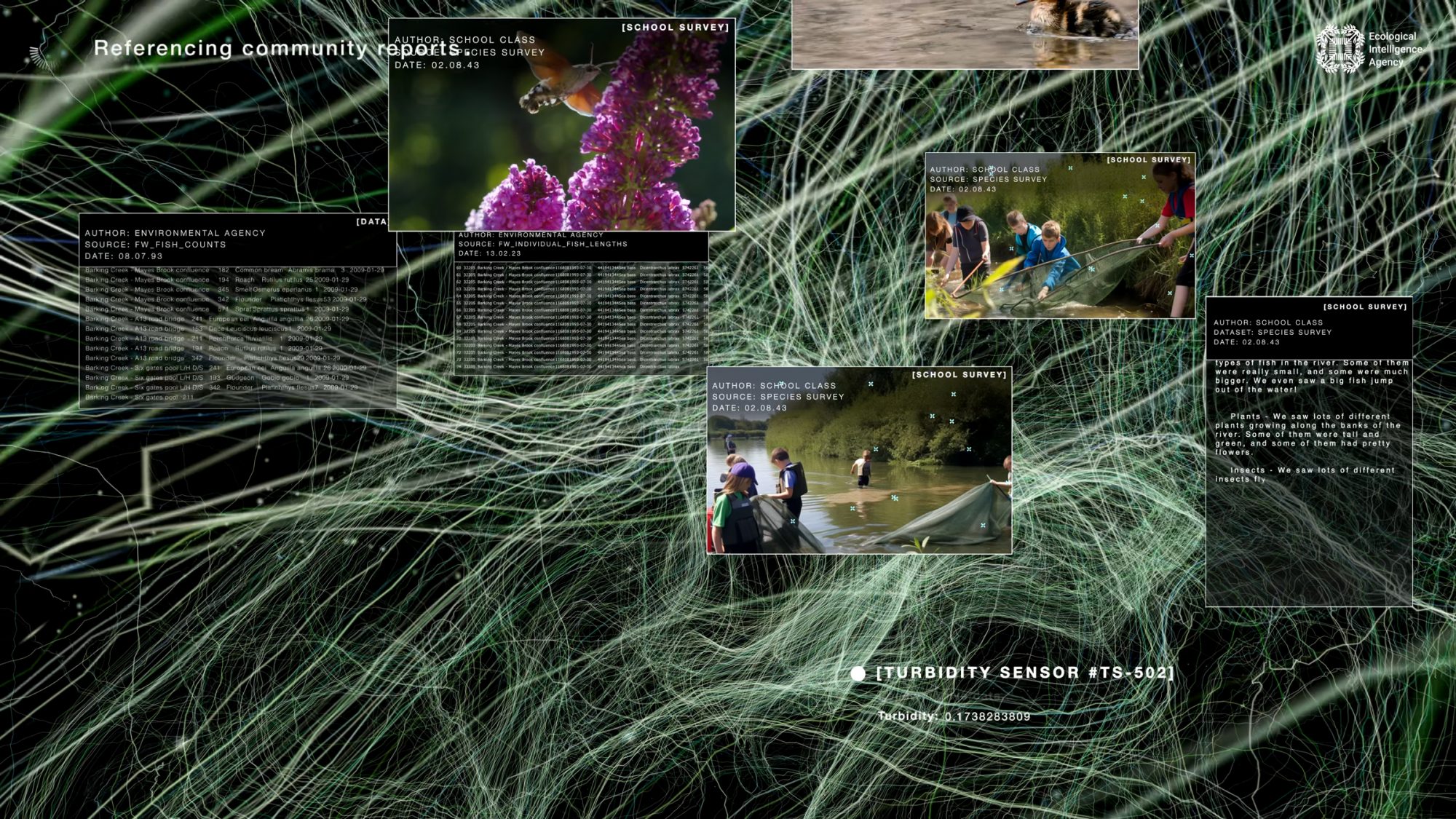
Are there entirely alternate intelligences that can be nurtured here? How can we unite labour, climate and data justice in a way that is not extractive but mutually supportive and led by the commons? Could AI be an advocate for ecological health? These are the questions we began with.
To create a foundation for Ecological AI, we considered an alternate intelligence that does not claim unlimited access to knowledge systems, does not assume only one way to understand the world and does not perpetuate dominant extractive paradigms. What of an intelligence that is accountable and accounts for a multitude of interconnected cosmologies and lived-experiences alongside data sets? Pushing this further, we wanted to render scientific evidence meaningful through the poetic, as well as make the journey transparent and traceable, in turn amplifying the voice of actants often left out of analyses and decision making.
The result: The Ecological Intelligence Agency.
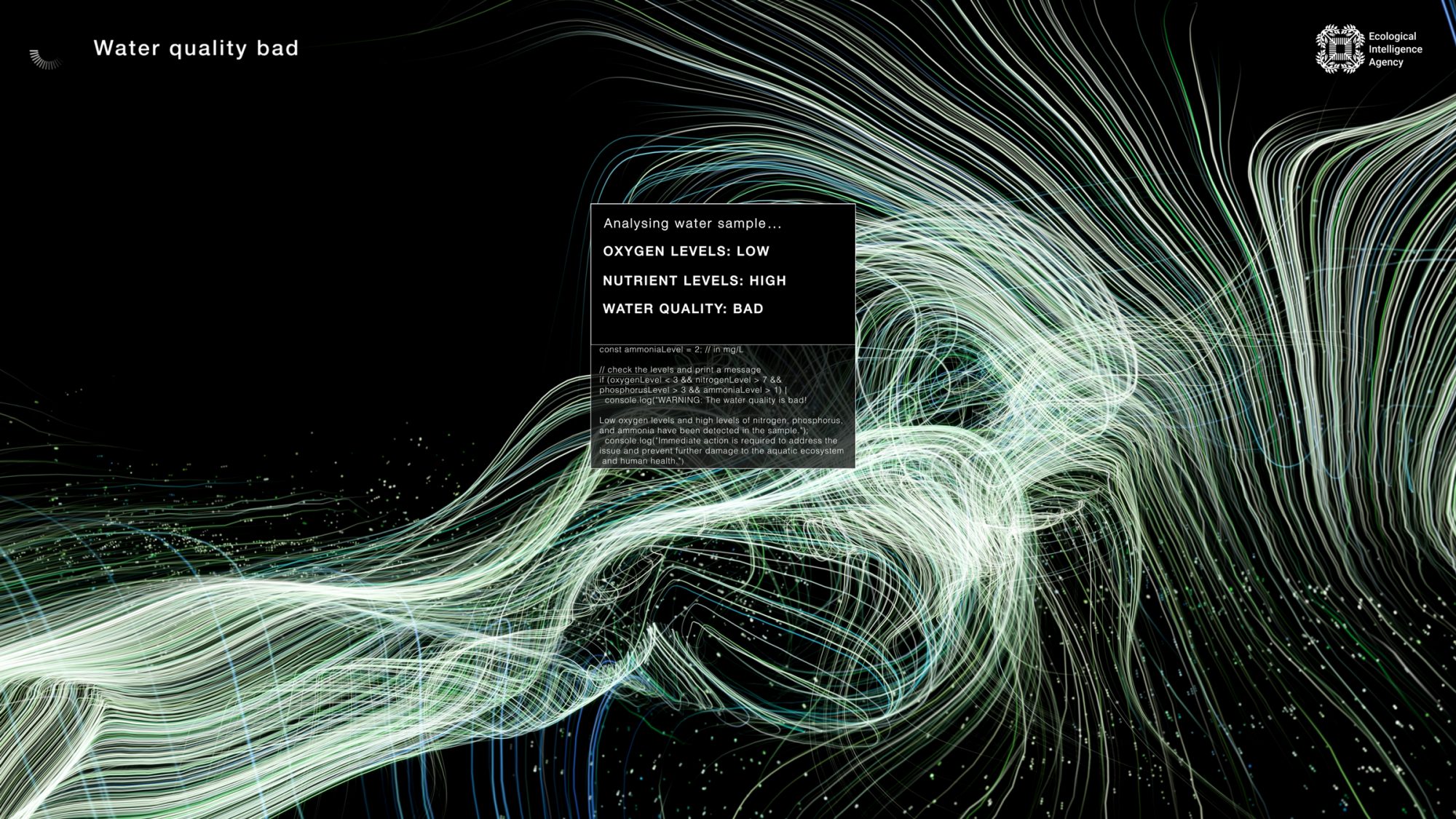
The Ecological Intelligence Agency: Aligning with Ecological Intelligence for a Flourishing Planet
The Ecological Intelligence Agency is an autonomous inter-departmental government agency that encompasses an assemblage of localised AI models all of which advocate for ecological flourishing. Co-developed with and informed by the wisdom of local stewards, the EIA has been intentionally developed for inter-relational use, bridging sectors, departments and communities to help build a (partial) picture of and communicate our entangled interdependence with the world around us.

Taking you on a journey across temporalities, data and poetics the EIA encourages ecological perspectives for policy formation, regulation and implementation with the intent to make river health sense-able and help situate policies within wider contextual ecosystems.
One large concern with LLMs is that even those who built the systems do not know how they reach the answers that they do. The untraceability of LLM’s outputs raises problems for regulation, intellectual property and accountability.
An AI that is necessarily ecological will not conjure a traceless answer in an authoritative singular voice but advocates for a multitude of perspectives, giving voice to (and recognition of) unheard communities and our under consulted more-than-human companions. We considered how an Ecological AI would draw connections and pursue reaction chains, whilst understanding the potential of gaps and its own limitations. Where the EIA encounters gaps in the knowledge it points to those who must be further consulted and involved in the decision making process.
In the words of mathematician and philosopher Alfred Whitehead:
“A proposition is neither true nor false in itself, but it is rather a lure for feeling the world differently, and its efficacy is determined by what it does, by what it makes possible to feel and think”.
Surfacing a plurality of voices in a mytho-poetic chorus, The EIA invites you to listen, feel and think with the situated wisdom of the waters.

Our Process
Generative models were used for all visual outputs as well as the voice of the River Roding. Using LLM’s, Superflux generated poetry spoken by the River. With prompts citing the ballads of English Romantic poets, the winding and lyrical form of Free Verse and situated tongue of local London spoken word artists, we asked the LLM to speak as the River, lamenting the quiet cascade of forever chemicals, to imagining a harmonious future. The AI voice was used to navigate many inputs from ecological data sources to community social media posts, establishing connections and culminating in evocative poetic outputs that consider and inspire a wide range of ecological possibilities.
Through research into the River Roding’s environmental and amenity risks, we developed three scenarios.
The first scenario looked at the pollution in River Roding, and focused on the impact of forever chemicals on ecosystems through cascades such as food chains.
The second scenario centred around sewage issues, looking at the wider implications of large infrastructure projects and the effects on the river such as algal blooms.
The third scenario considered increased flooding risks, and speculated on ways of living alongside natural water flow patterns.
Images
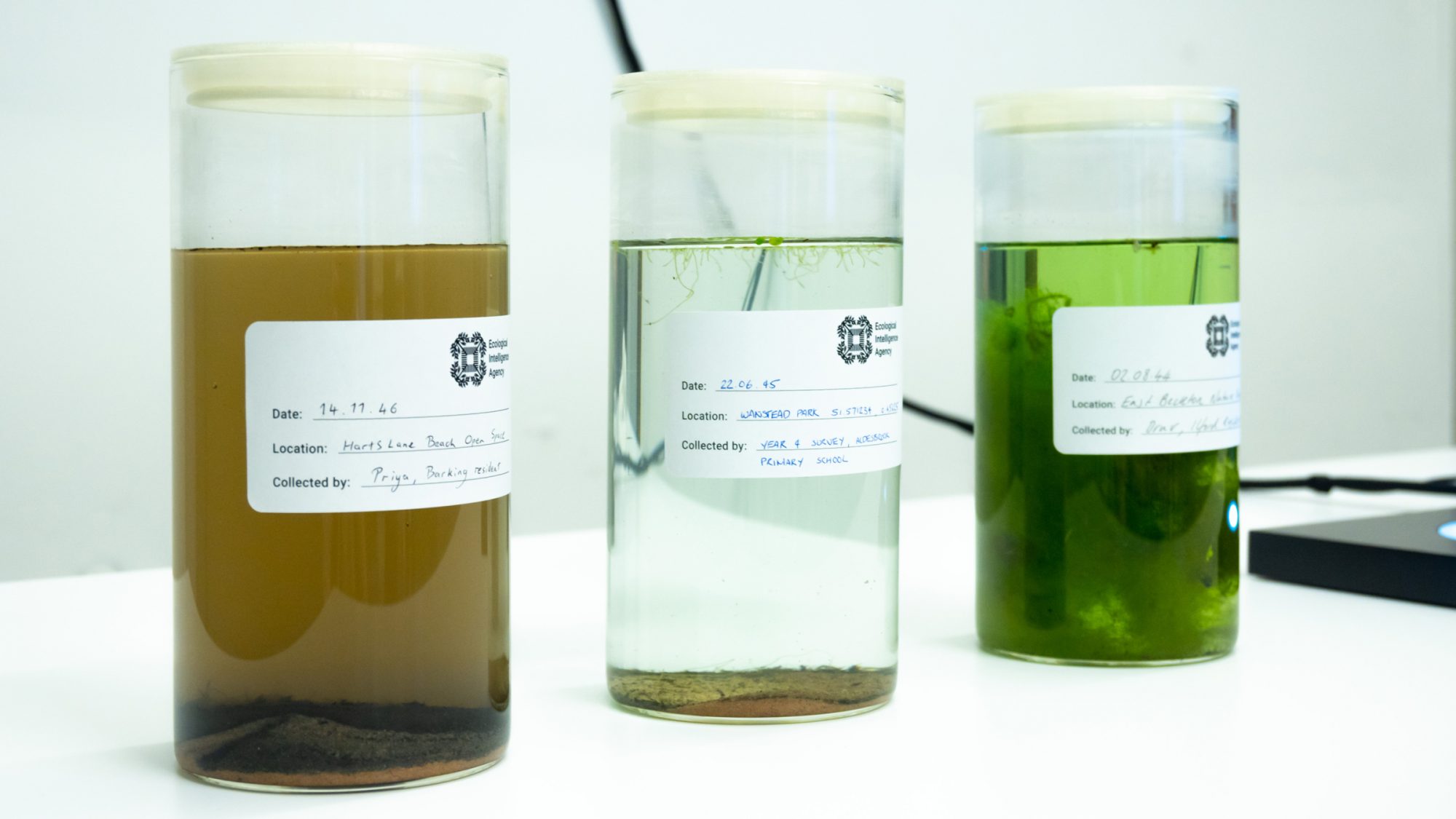

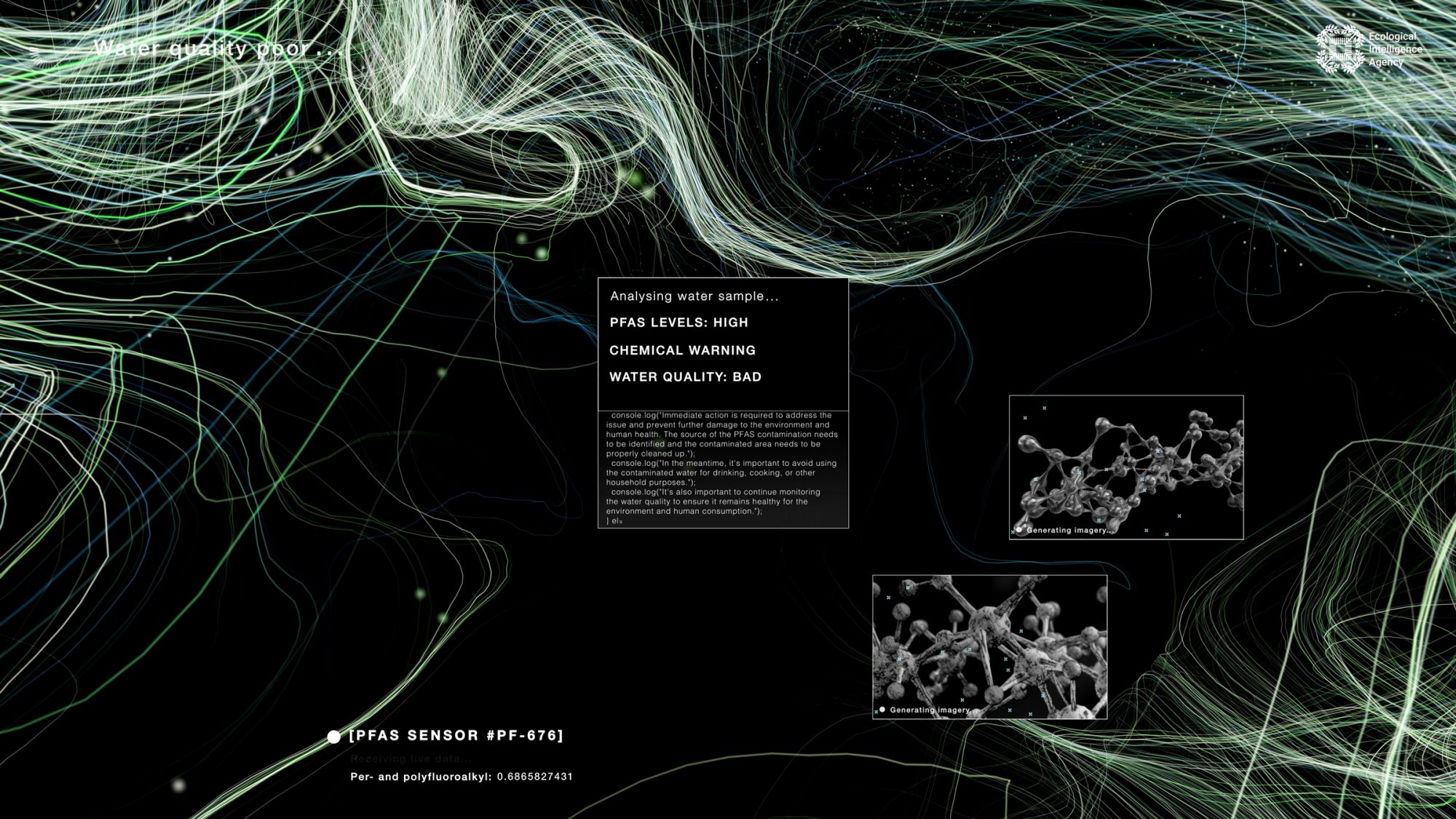
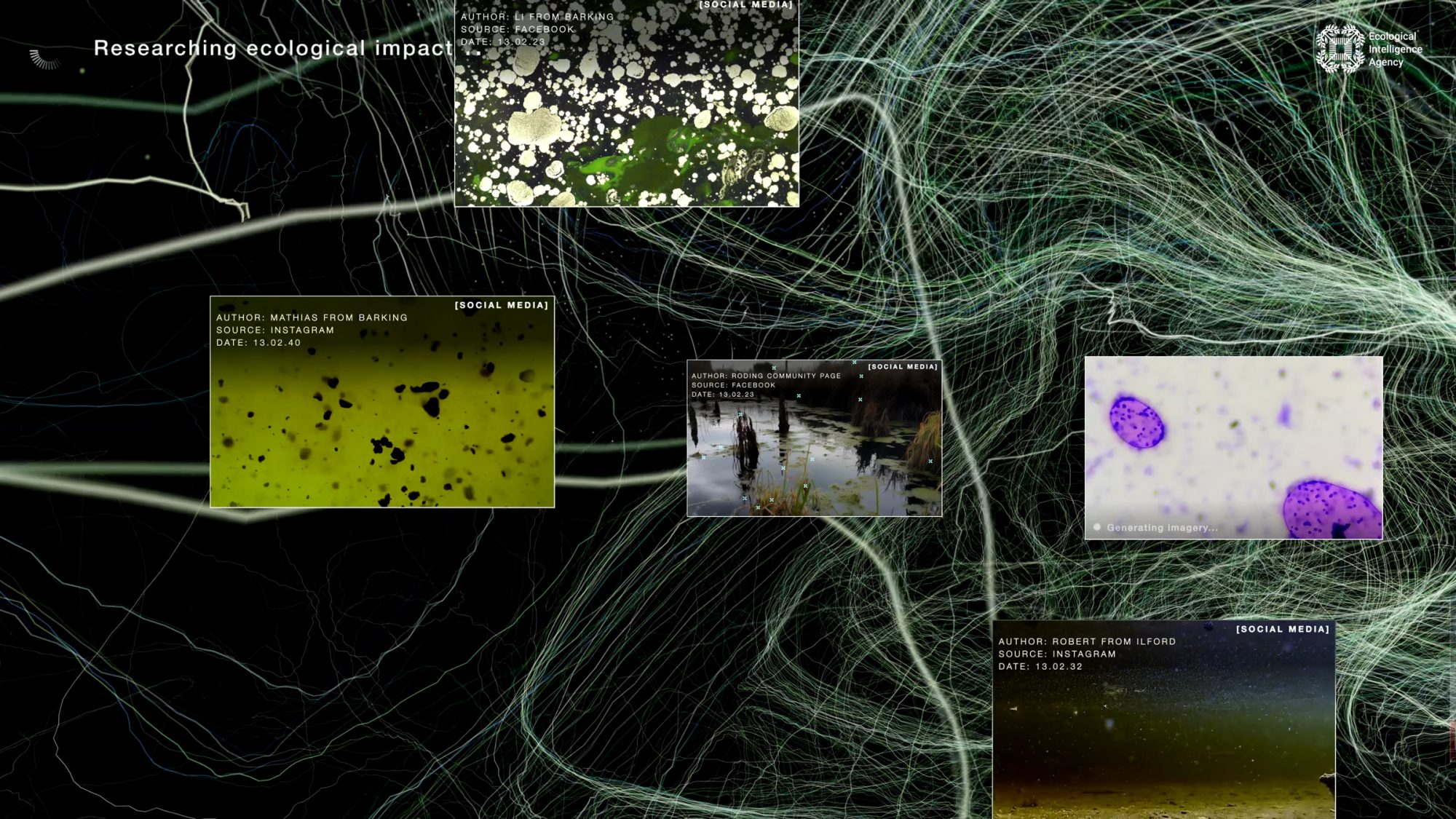

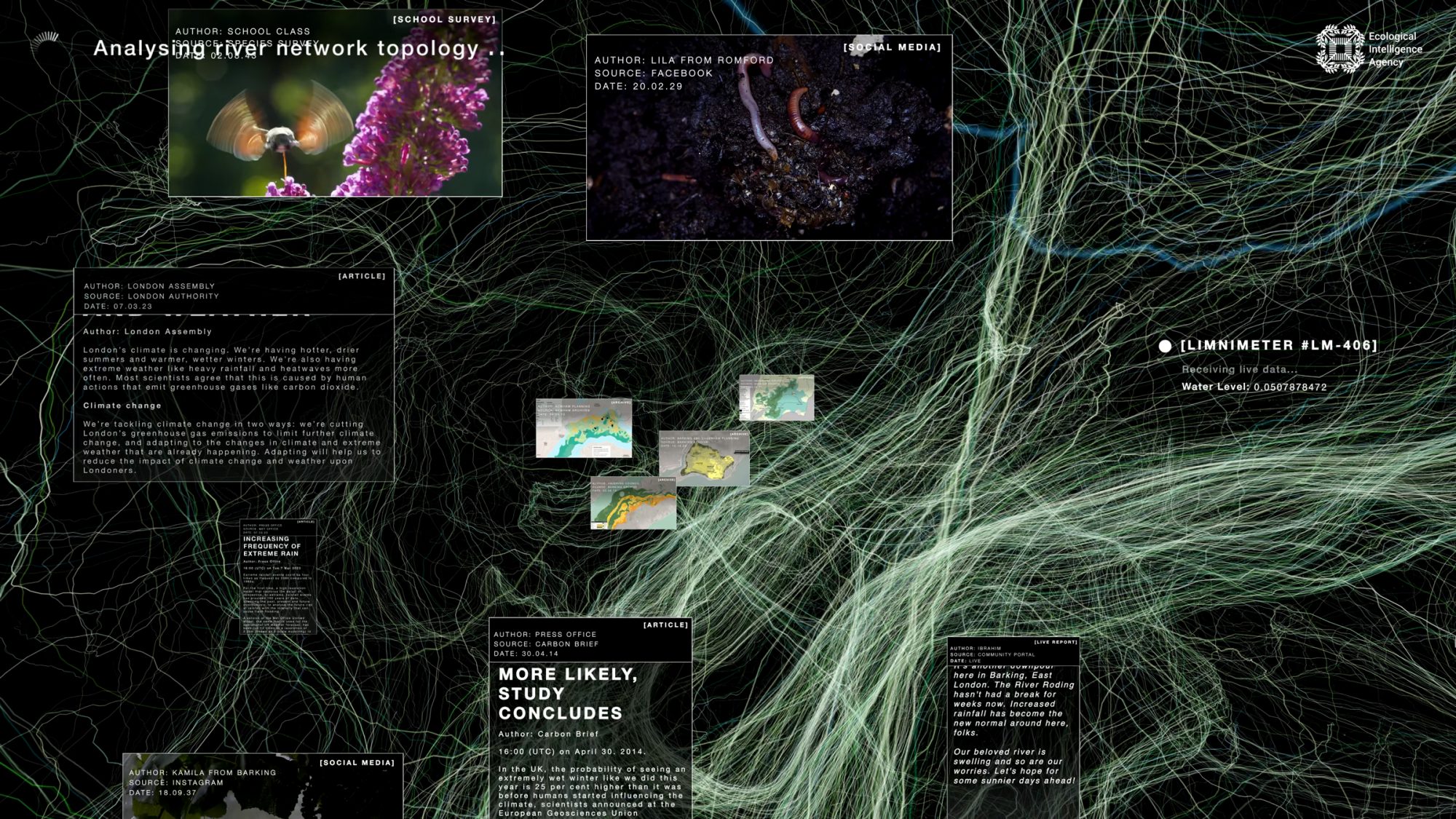


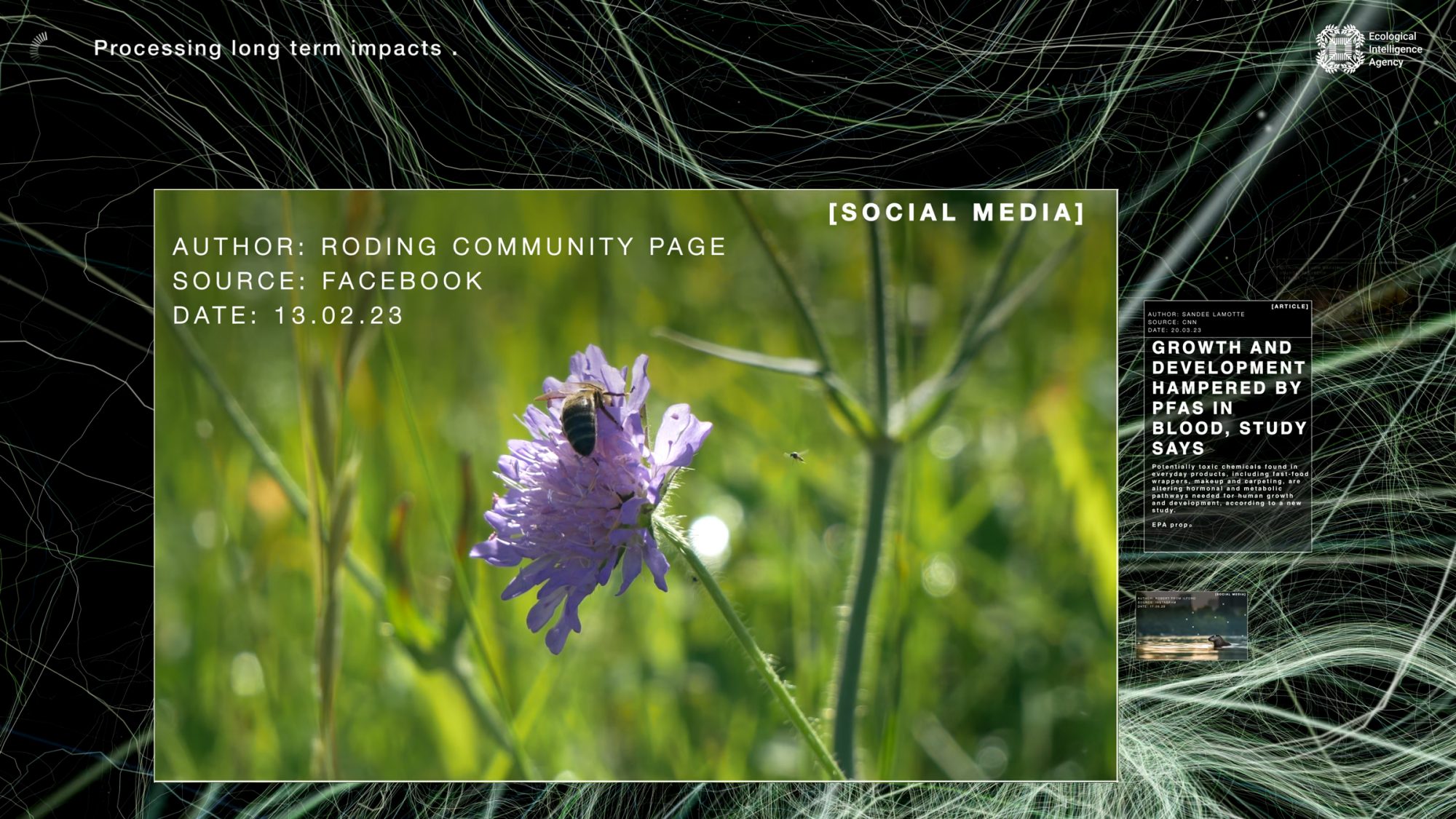
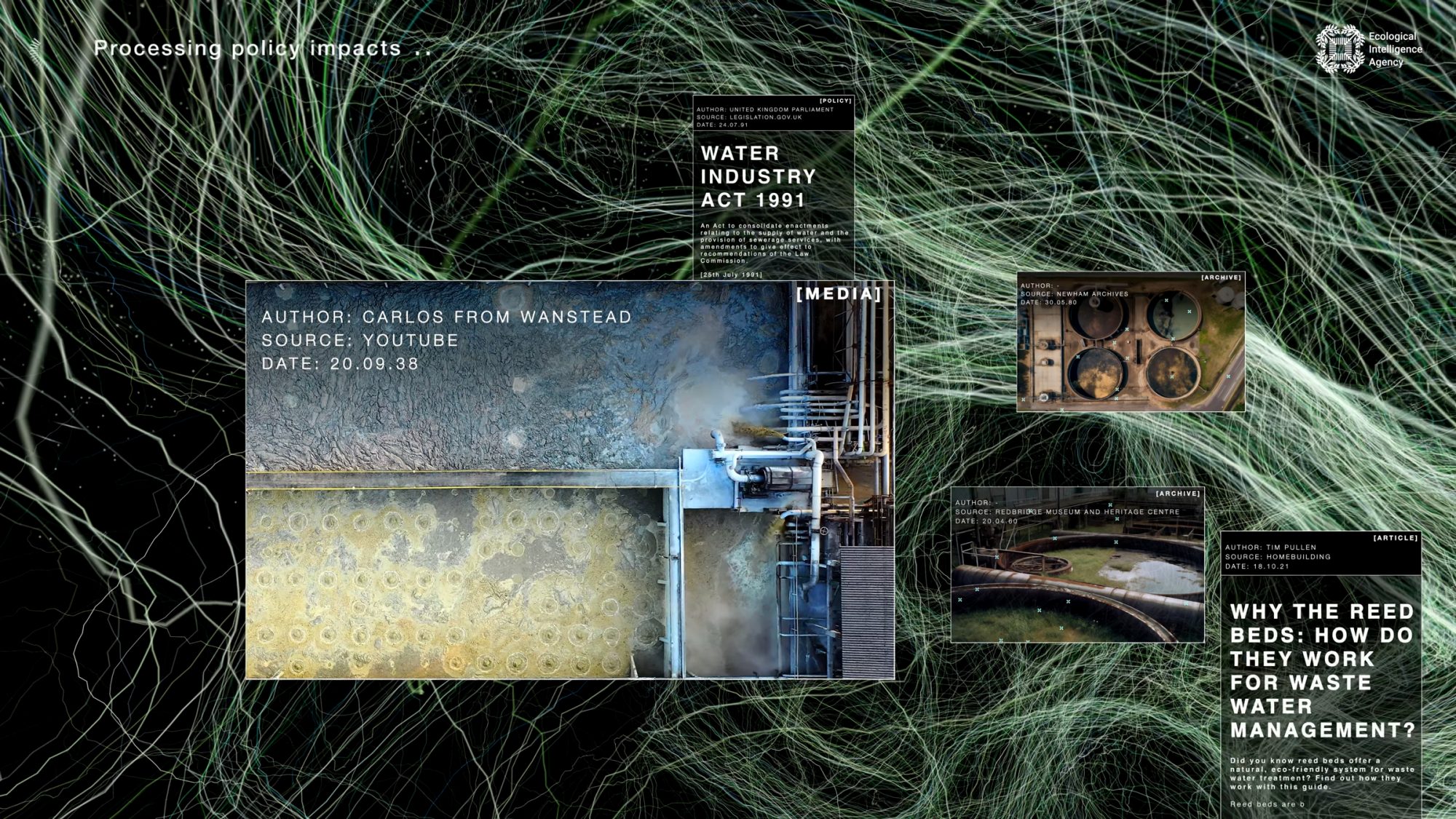

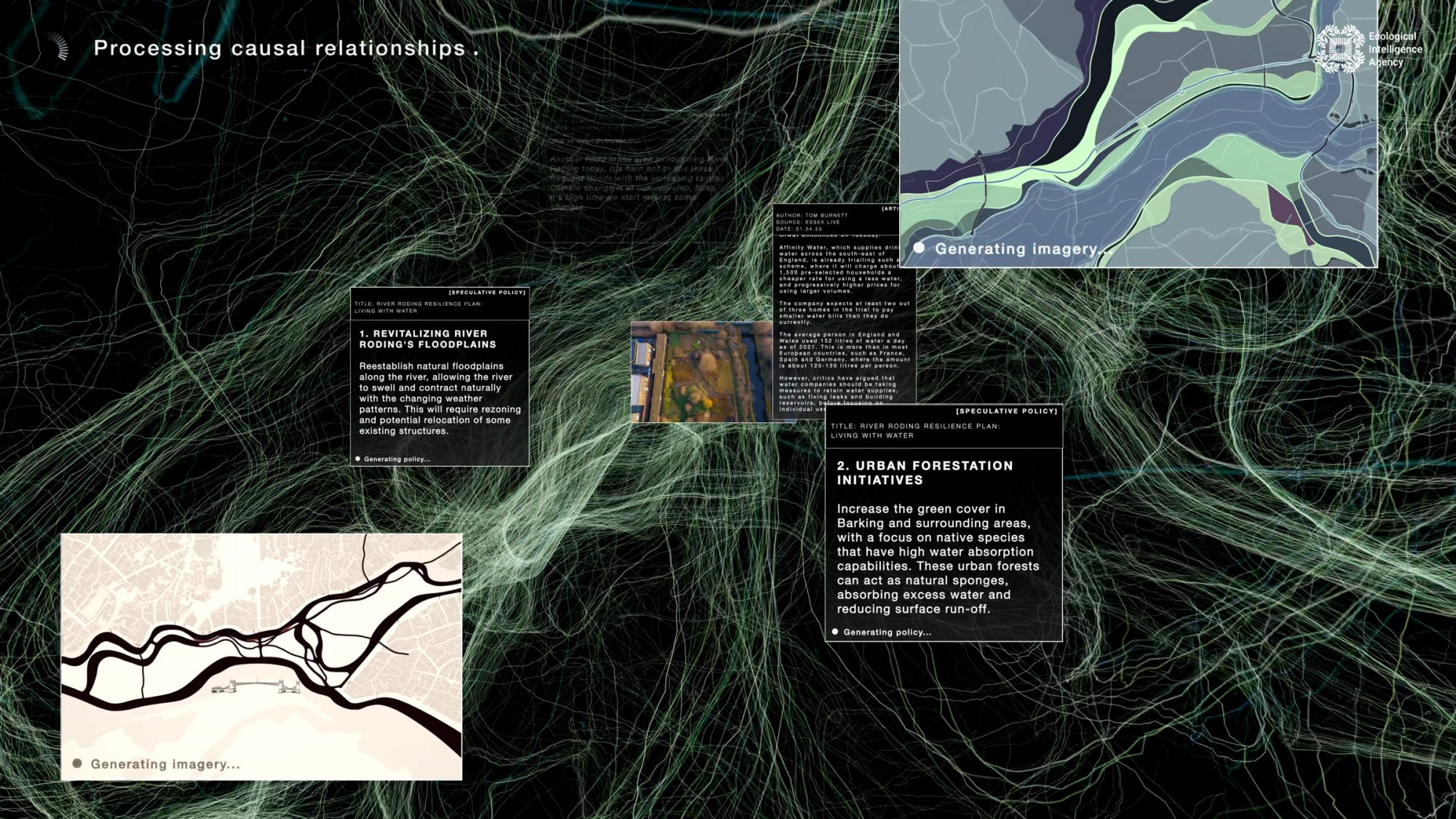
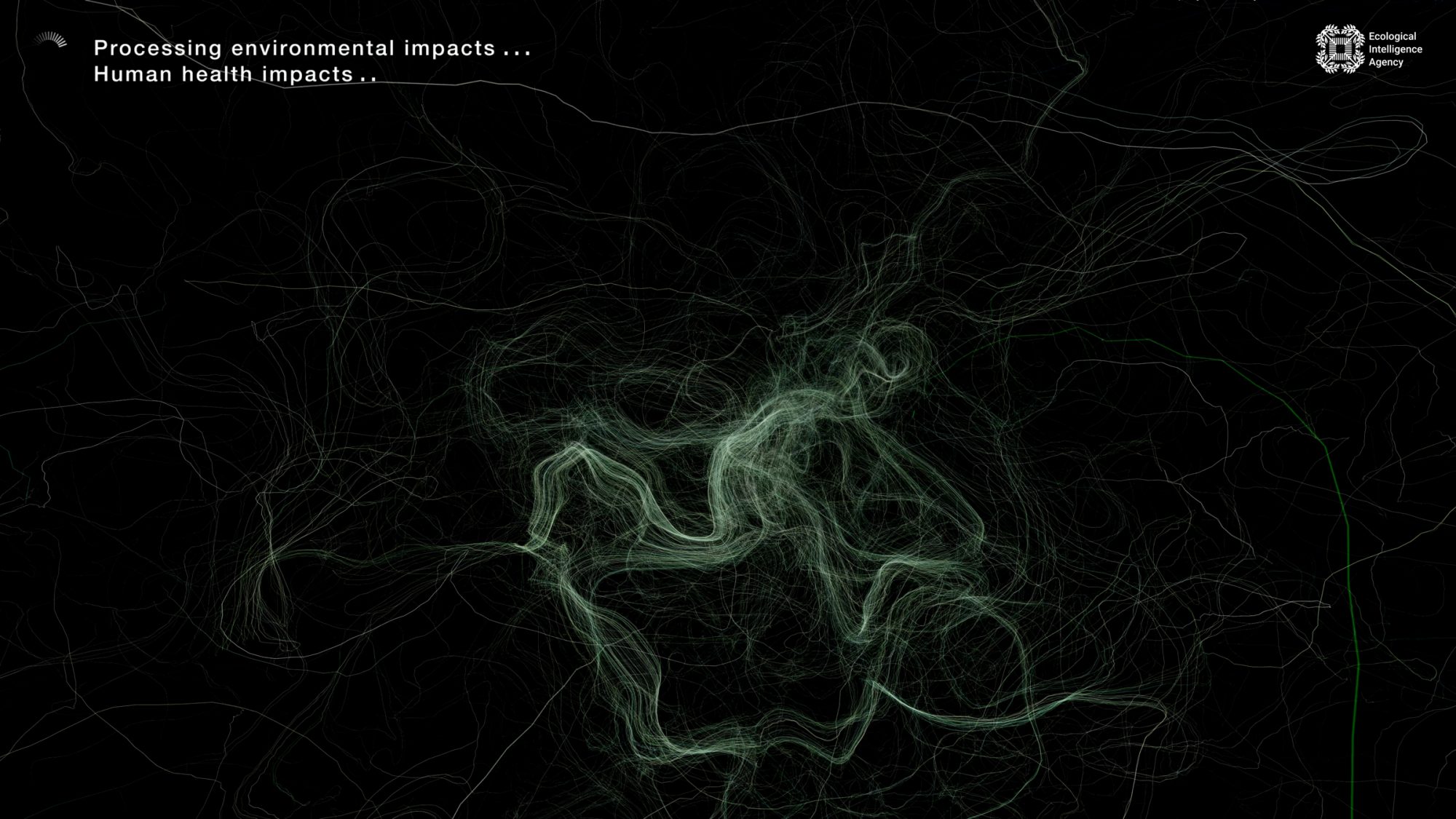

Engaging with Policymakers
The Ecological Intelligence Agency served as a catalyst for discussions in the Policy Lab x Defra Futures World Cafe forum which considered how technology, serious play and local communities could inform future policy-making, representing a ‘radical departure’ from the way decisions are currently made. Over 80 stakeholders, including policymakers, academics, NGOs and regulators, attended the forum.
Reflecting on the Ecological Intelligence Agency as an intentional approach that could help bring diverse ideas and voices into the policymaking process, participants expressed excitement about the potential for a non-anthropocentric AI, how AI might play a role in revealing the relational and interconnected nature of all beings, and how giving voice to more-than-human actants can help to build understanding and compassion.
The EIA prompted rich and knotty discussions, and proved a compelling provocation to interrogate present and future modes of decision making.
“Amazing work by Superflux and Policy Lab UK to really push the #AI conversation into areas of ‘ecological’ intelligence and where the threshold for faithful representation of non-human entities really lies? But as Tim Morton highlights (using Kant’s example), They are raindrops but paradoxically, none of the raindrop data—splashy, wet, irritating, nice, this big, this speed—is the raindrop. We need new data perspectives for #morethanhumanfutures”
Phillip Tovey


*None of the above is representative of government policy or intent
Acknowledgements
We would like to thank Sanjan Sabherwal, Neha Sharma, Victoria Robinson, Ben Peppiatt and the teams at Policy Lab, and Philip Tovey at DEFRA for the opportunity to partner and develop this work.
Sound mixing by David Vélez